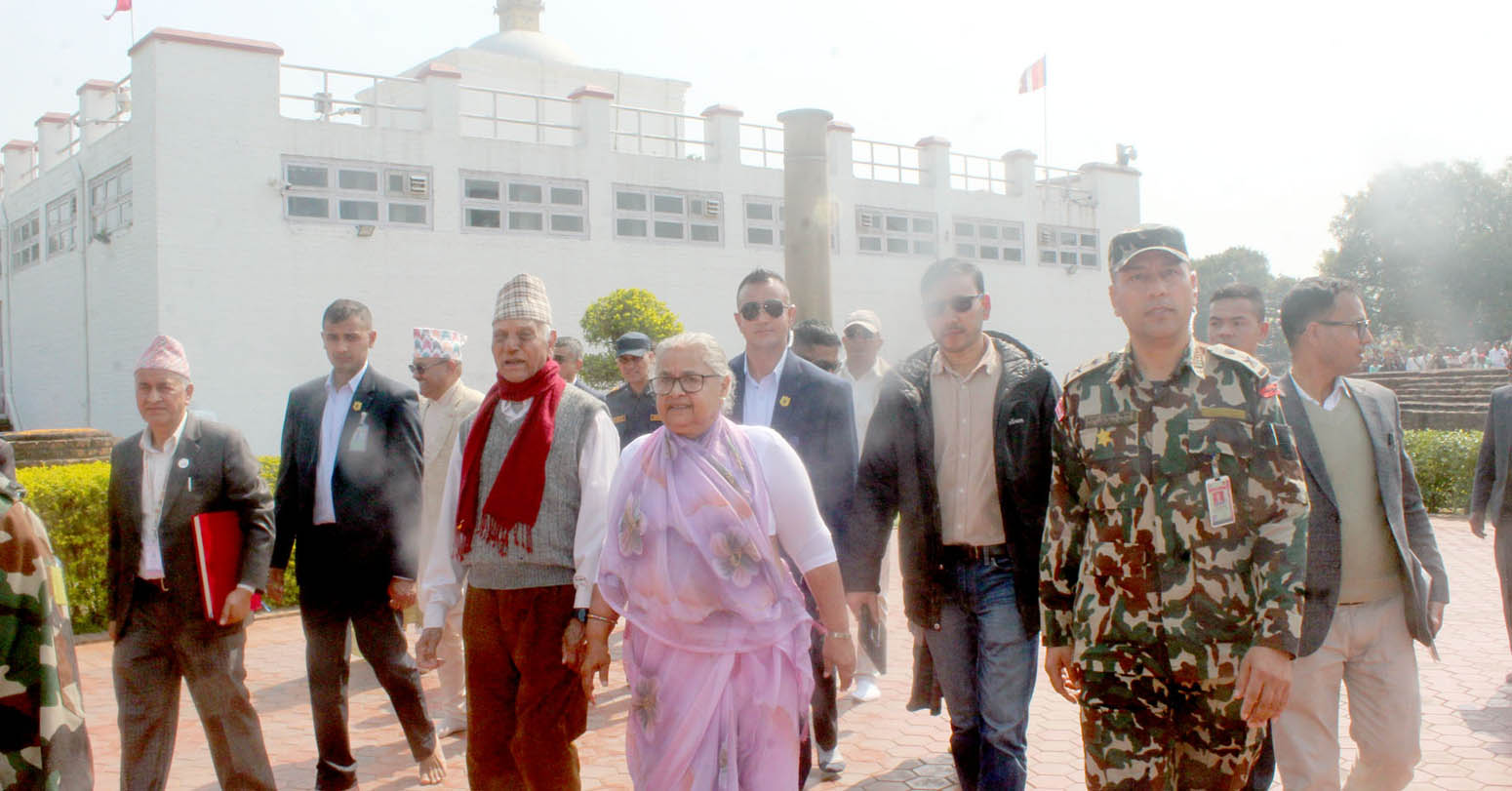
I had just finished my annual exam and was getting ready to head home. At night, I was going to meet my communist comrade. In the morning, a minor incident occurred. I was heading to the store to buy vegetables and milk. Rai's brother from somewhere in the east was coming with a bottle of cold milk and a little bundle of greens. He was wearing a torn shirt on his arm but no slippers. The days in Mangsir Poush were extremely cold. "Kancha," I said, "why aren't you wearing slippers?" “Do servants also need to wear slippers?” is what the master responds, said Kancha. Even when the days are colder, he consumes a lot of meat and alcohol but does care about my cold feet.
In the evening, Kancha was also present in our studying room. He had lit a kerosene lamp because the electricity was so dim. It just so happened that the Rai boy's lodging's comrade owner had arrived to teach that day. I got up, brought up the child's point, and said, Comrade, will you continue to teach us tales of the liberation of the oppressed, the suffering, and the working people while you chew chicken bones, drink alcohol, and smoke cigarettes? When will we, the workers, the poor, and the workers, be able to wear new clothes and slippers? Is communism like this? When will we be liberated, and from whom?
As soon as I questioned, the comrade teacher angrily told me to leave. This is not the place to ask such questions. I never went inside the closed door of that utopian delusion known as communism after leaving that communist door. I'm starting to think that the power and feasts carried out by displaying the communist dream are the same as the rituals carried out by narrating supernatural tales of heaven and hell. They are not fundamentally different from one another. The only differences are in the means and style of expression.
I formally joined the Nepal Student Union in 2031 BS after spending a year reading up on communism, freedom, the Nepali Congress, and communists in Nepal. At the time, I was jointly granted membership by Shiva Prasad Bhattarai (Kathmandu Gairidhara), Keshav Adhikari (Rautahat), Laxminarayan Neupane (Dolpa), Indramani Adhikari (Kavrepalanchok), Hari Adhikari (Dhading), and Dhundiraj, who resided in the Sanskrit hostel. After that, my journey toward press freedom, human rights, and democracy started and will continue no matter how much pain and suffering I have to go through. I've been involved in the democratic movement for fifty years as I write these words.
Nonetheless, a large number of my esteemed acquaintances share sympathies with and endorse the communist ideology and movement. Trilochan Mainali, Laxmi Prasad, Prem Mainali, Khemnath Dahal, Basanta Shrestha, Ramesh Chandra Poudel, Narayan Bhattarai (Tehrathum), Toynath Bhattarai, and Madan Dahal were among the good people I was with at the time. Additionally, I got to know N.K. Prasai. In this context, Vasudev Upreti, Abhi Subedi, and Ekraj Acharya—some academics who supported political freedom—were also introduced. Additionally, I was introduced to Duryodhan Giri, Mani Bhattarai, and Tulsi Bhattarai, who were regarded as strong members of our district.
I can recall two incidents while I was studying in grade nine. The Valley Students' Working Committee first held a conference. President Deepak Raj Joshi was in office. He was a student at the law school; he would go on to retire as the Supreme Court's acting Chief Justice. I was also included as a representative from Ranipokhari by Shriram Adhikari (Dhading). The Ranipokhari Sanskrit Pathshala Student Working Committee had him as its president. In addition, he served as the Student Working Committee's treasurer. In Sanskrit Secondary Schools, elections were held every two years to establish a working committee, despite the fact that political student committees were prohibited everywhere.
Together with me, Shiva Prasad Bhattarai (son of renowned jurisprudence scholar Padam Prasad Bhattarai), Indramani Adhikari, Bishwanath Gautam, Shyam Neupane, and Shriram Adhikari arrived at the conference location, which was the top floor of Padmodaya Secondary School (a new building was constructed following the 2072 earthquake, so the building and hall are no longer there). They were registering everyone's names. A year prior, I had some acquaintance with Deepak. Numerous friends had gathered, including Mukunda Sitaula (Nuwakot) and Bharat Pudasaini (Kathmandu), who was enrolled in Shanti Vidyagriha or Juddhodaya. All of a sudden, a group entered the hall and began assaulting us. Uttam Rai, Deepak Bohora, Namud, and Padam Thakurathi from another campus, Niranjan Thapa from Law Campus, and a photo studio owner from Bagbazar were part of the group.
None of us could do anything. Other than a pen, we had nothing. I and my pals were beaten badly. Blood began to flow from a wound on the back of my head, and I was taken to a nearby medical facility where I was given medication. I still have the wound on my head. Purukumar Thapa, Laxmi Prasad Mainali, and Prem Prasad Mainali from Jhapa were living with me in Kamalpokhari at the time. "You have had too much of a taste for politics," they said when I returned hurt. And for a few days, they prepared and served food and water themselves. When I was ill, they were of great assistance to me. I will always remember the characteristics and nature of a good person.
Following this, the student working committee was elected, most likely in 2030. Eventually, Shankar Adhikari became president. We were in the same class. I became a candidate after he asked me to run for secretary. After all of our classmates—aside from one who we had previously converted to communism—joined the Nepali Sangh, we won with ease. That one friend, however, supported me through everything. In college, I thought he was great. Hari Subedi was his name. Class 6 student Shambhu Pokharel was elected. He was the son of Tanka Prasad, a well-known fool in the politics of Kathmandu. On my in-laws' side, he eventually became my maternal uncle. It is while writing these lines that I have learned of his death. The committee included Mukunda Nepal from Nuwakot as well. In recent days, he has not been very active.
After I was appointed secretary of the Ranipokhari Student Working Committee, my political journey was formalized. Debates, poetry, oratory, and athletic contests were all held by the committee. Hemanidhi Nepal, Krishna Prasad Bhattarai, Hom Prasad Grihasthi, Prem Prasad Gaire, Damodar Pokharel, Jayaram Pokharel, Mukunda Poudel (Pharping), Vasudev Regmi, Badrinath Adhikari, Achyut Rijal, Mukunda Gautam, Achyut Gautam, Gokul Sapkota (Kavre), Narayan Sapkota Sindhu, Anant Sapkota, and Rammani Luitel were all very active classmates.
On the birthdays of our lower-class classmates, we used to motivate them. Many girls were studying at the time, including Sushila, Krishna Shrestha, Yashoda Gautam, Yashoda Adhikari, and Rama Acharya. Manikarnika Pokharel, who had attended our school until eighth grade, had moved on, possibly to Laboratory Secondary School. Yadav Bhandari also moved to Bhanu. Chuda Niraula, a gifted student who had arrived in grade six, had also left. There was a long line of friends from the east who had finished grade eight from Tanahun, Lamjung, and Gorkha, including Bishnu Hari Poudel, Sudarshan Subedi, Suryamohan Kafle, Tirtharaj Adhikari, Tuknath Adhikari, Ramnath Kafle, Bishnu Bhakta Poudel, Jeevan Adhikari, Chandramani Adhikari, Ramraj Subedi, and Hari Poudel. Bhojpur native Devendra Neupane was impacted by the Ralpha movement. He would still assist us.
Programs were scheduled during the school's annual celebrations when we were on the student council. The school's yearly celebrations used to attract literary luminaries such as Balkrishna Sam, Madhav Ghimire, Kedarman Byathit, Siddhicharan Shrestha, and Surya Bikram Gyawali, as well as government representatives from that era. In addition to attendance and response, there were competitions for sports, debate, poetry, essays, and oratory.
Tejkeshari Sharma, Bishnu Prasad Neupane, and Bishwanath Pokhrel were the principals at first. The instructors included renowned gurus such as Badrinath Sharma, Indunath Pyakuryal, Goma, Siddhinath Gautam, Damodar Dhakal, Sambaraj Acharya, Shree Krishna Adhikari, Durga Prasad Dahal, Bidur Prasad Poudel, Upendra Dhungana, Damodarnath Lohani, Krishna Chandra Neupane, Malla Sir in English, and Shukdev Poudel to Bharatmani Risal. Both Krishna Chandra Guru and Indunath Guru were amiable. Shukdev Guru used to speak only Sanskrit and Hindi. Other gurus also arrived over time, but I don't really recall them. Vishnu Guru was a Vedanti, Tejkeshari Sharma was a philosopher, and Vishwanath Guru was a great student helper. Many of them later became teachers at Valmiki Vidyapeeth, while others worked for the government at Bharatmani and Damodaranath. They all supported our organizational and political practices rather than outlawing them.
Interviews were conducted while some seats in the Sanskrit hostel became available. I was able to get to the hostel with the assistance of Dhundiraj Daju and the affection of Shukdev Poudel Guru, a renowned grammar scholar. I was at number 13 on the waiting list, but my name was completely missing. The waiting list likely had around thirty names on it. When I arrived at the hostel, Puru Dai, Laxmi Dai, and Prem Dai from Kamalpokhari assisted me with the required items, etc. It was my turn after we arrived at the hostel with twelve people on the waiting list. As it happened, Dhruv Wagle, a government official who had successfully completed the civil service, was present. I was informed that Wagle Daju from Gorkha would immediately leave the seat if you spoke to him. If not, it might take an additional month.
I spoke to Dhruv Wagle, "All right, brother," he said. Today, I'm stepping down. Tomorrow, you can bring your clothes to the hostel, and don't forget to bring cash for the deposit. You will receive your deposit back when you check out of the hostel. I informed Laxmi Daju as soon as I got to Kamalpokhari. They made a deposit, purchased some clothing, and even gave me some extra cash. Even back then, the hostel resembled autonomous anti-panchayat politics. I was certain that I would have the chance to be ideologically enlightened there. To be continued…
This is a translated version of an excerpt from Prof. Purushottam Dahal's unreleased book "Smriti Parikshya." Prof. Dahal is the Editor-in-Chief of the Himalaya Times National Daily.



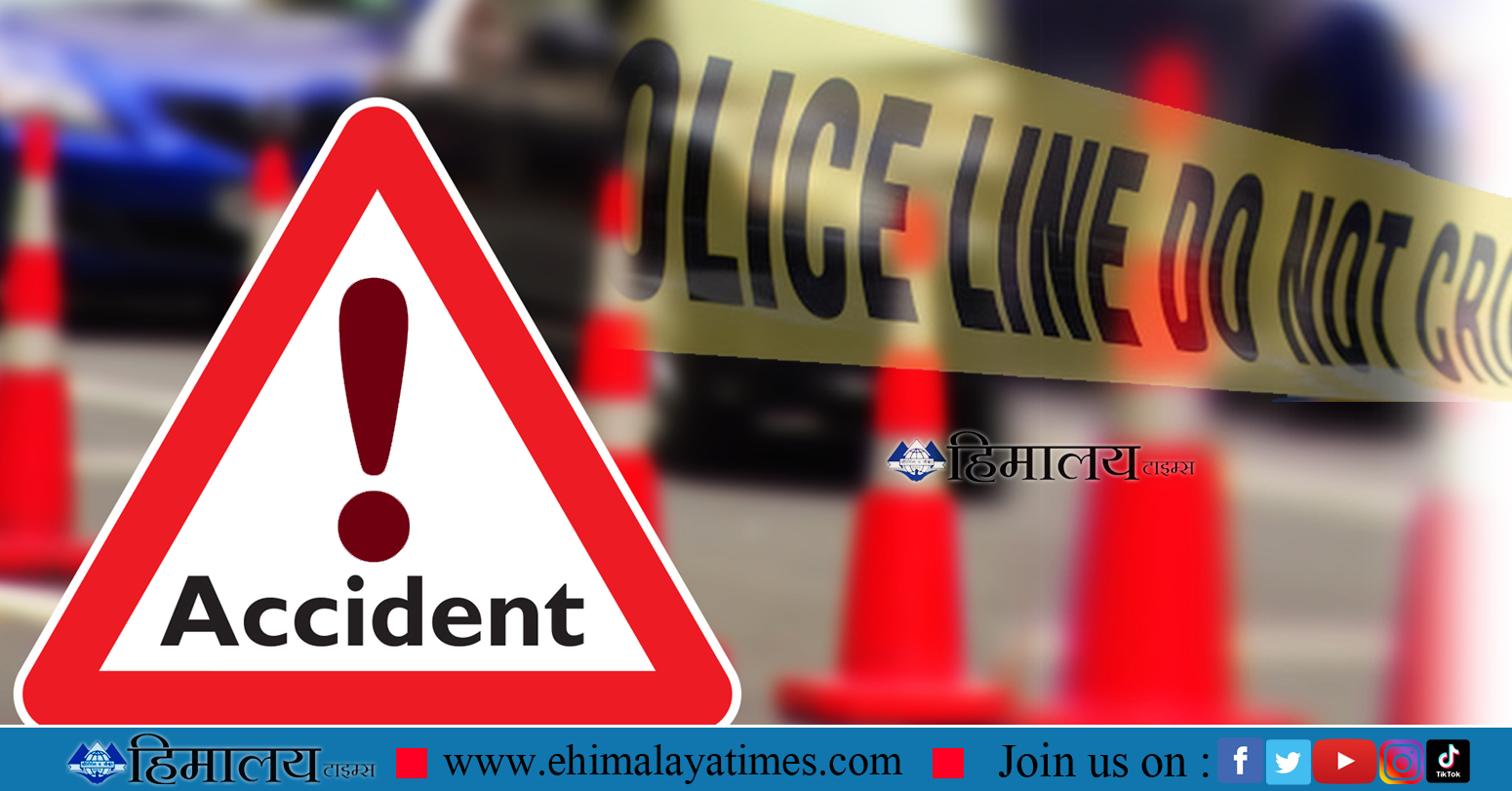
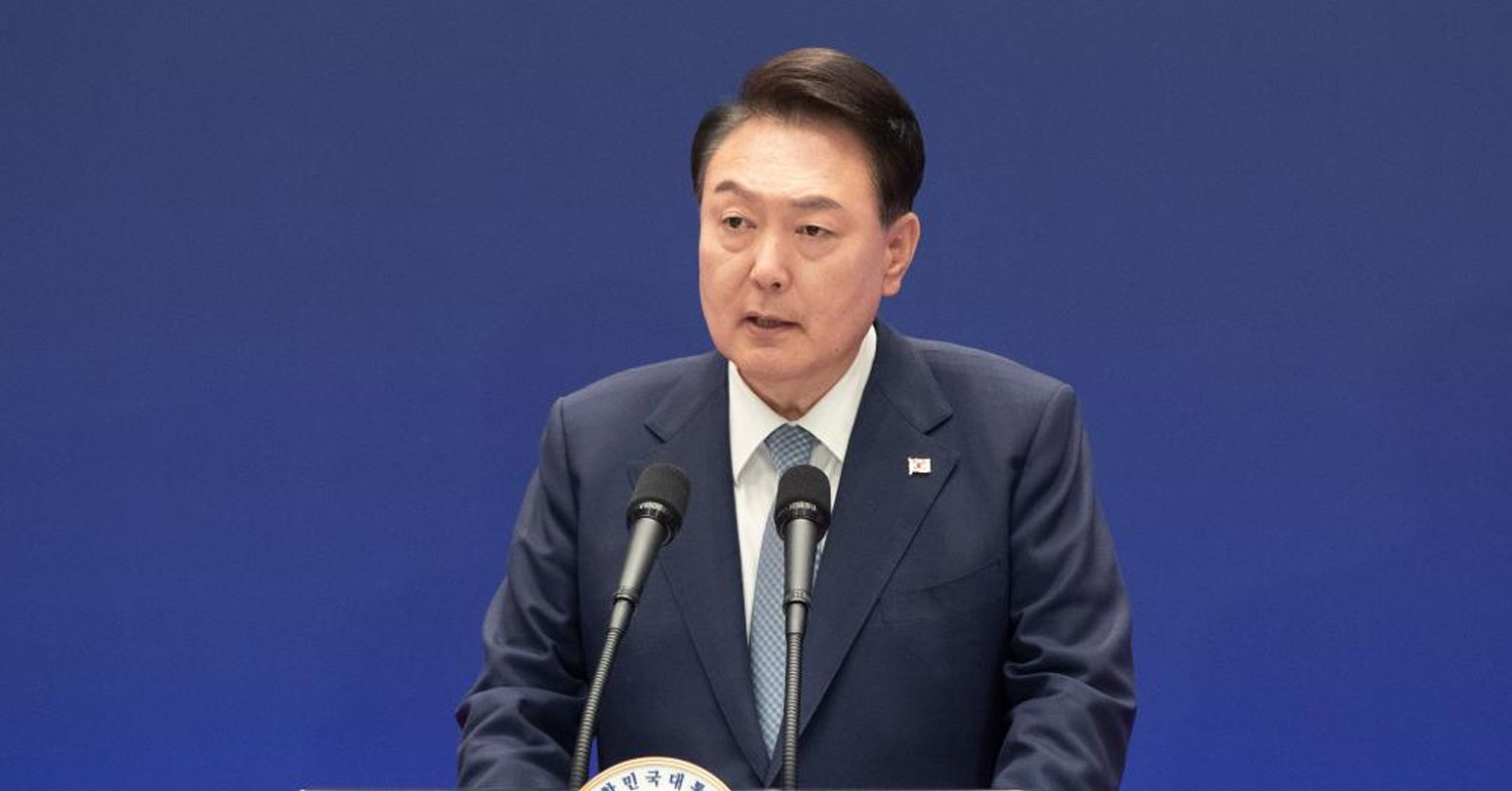
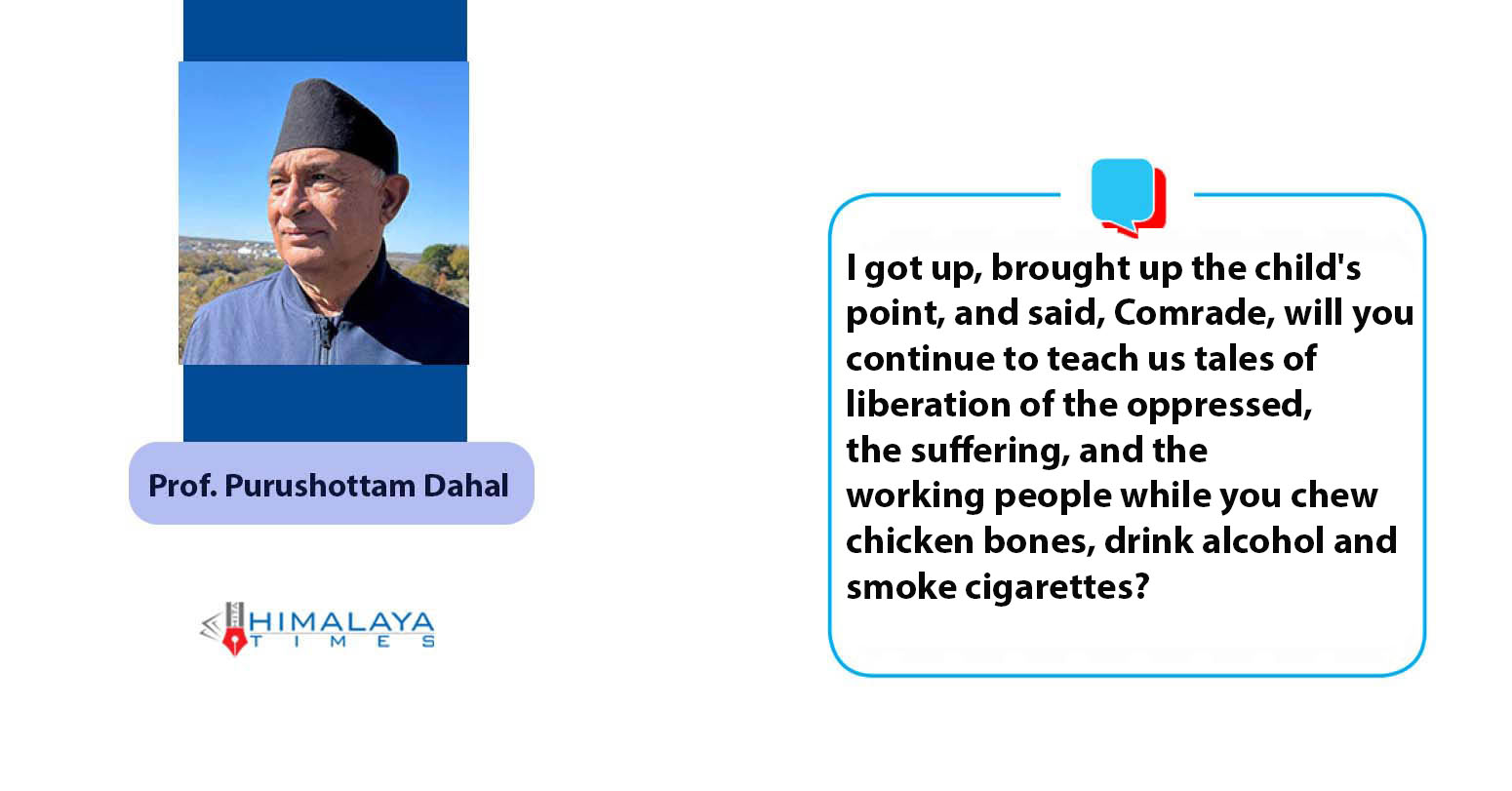
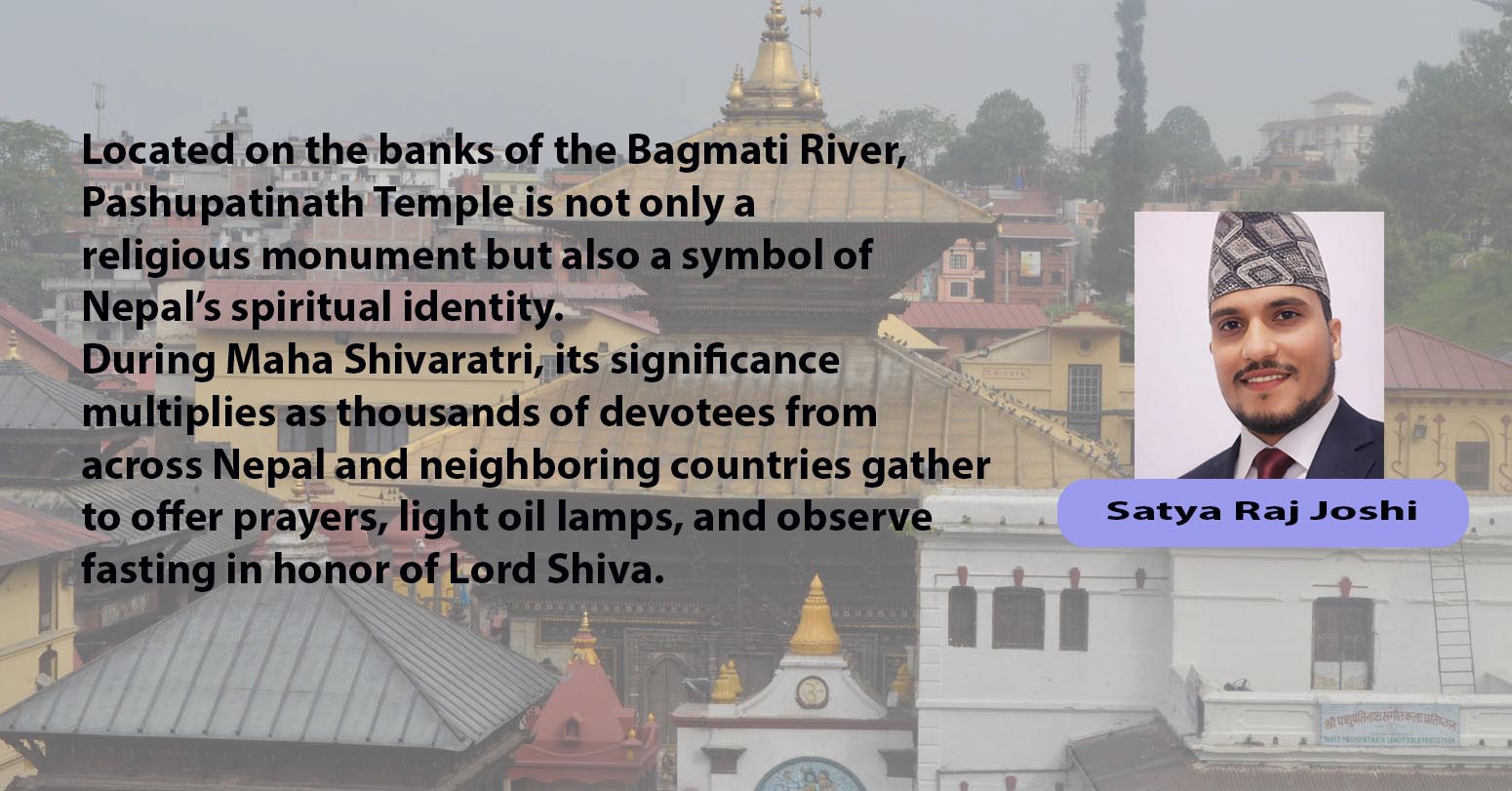


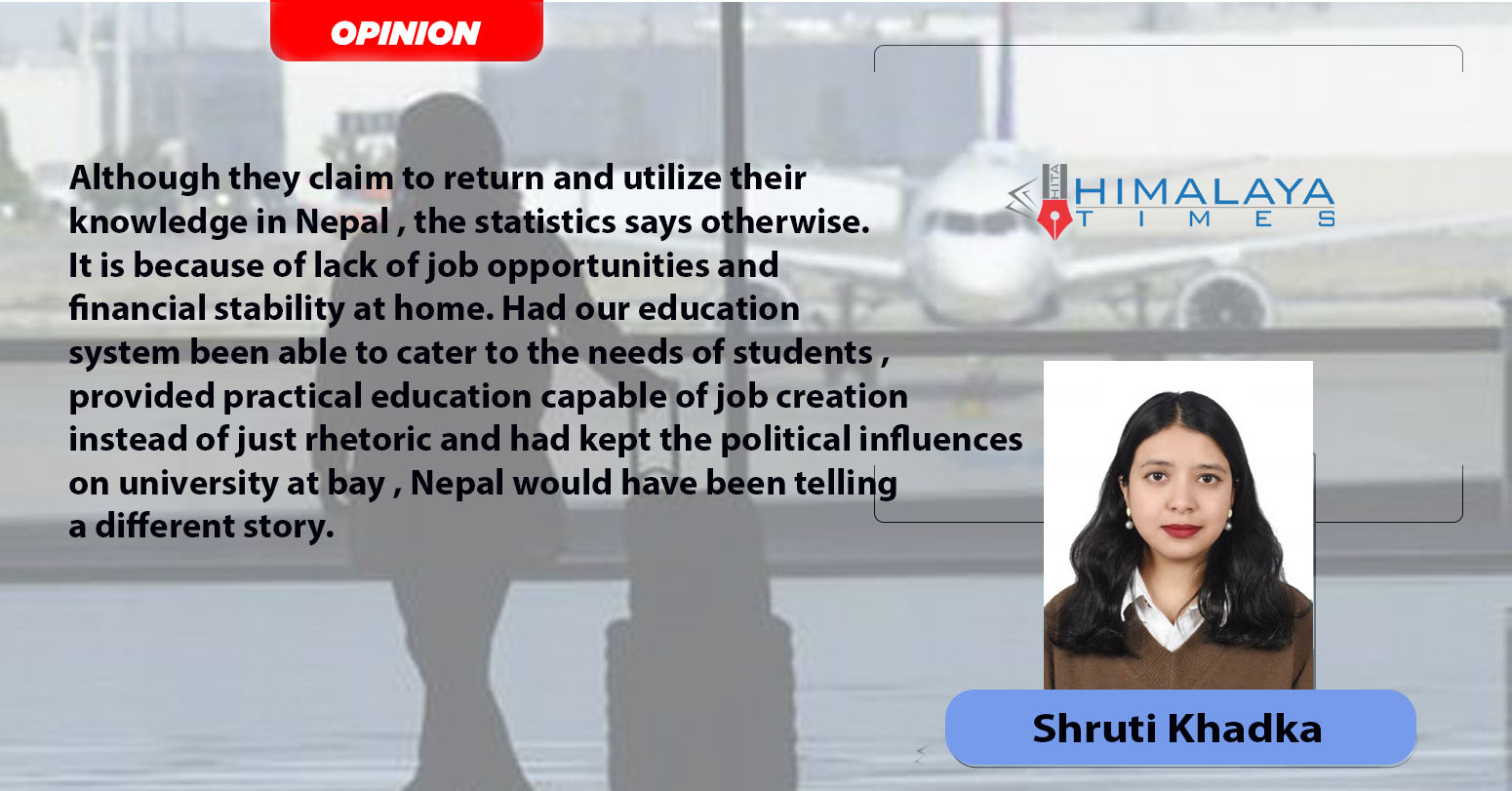








Middle-aged man spends millions to
Dr. Dharam Raj Upadhyay: Man
Children, Greatest Victims Of Sudan’s
Breathing The Unbreathable Air
Comprehensive Data Protection Law Critically
Gender Differences In Mental Healthcare